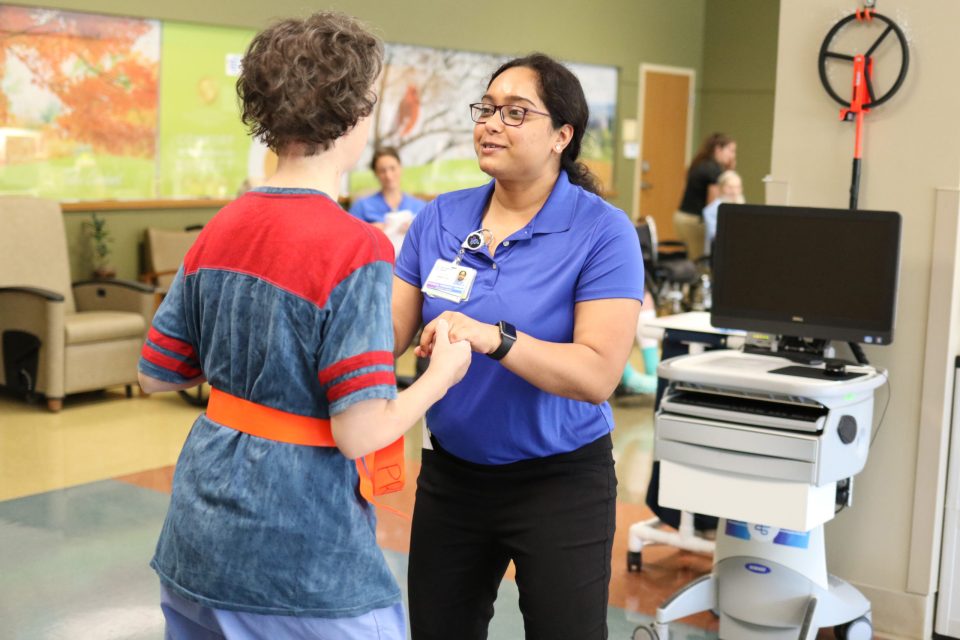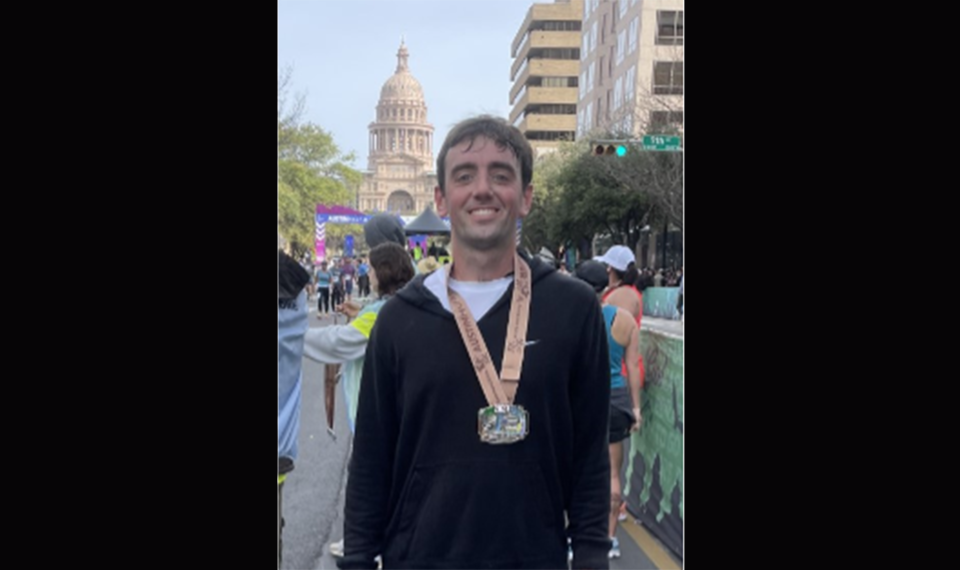As an executive at Encompass Health Corporation, a national rehabilitation services provider, I am grateful to have played various roles in countless patients’ journeys throughout my career. Before transitioning into my current role, I spent time in my early career providing rehabilitative care as a physical therapist and then many years in hospital administration.
While every patient’s recovery is worthy of celebration, there are always a few stories that stand out to me, because they truly remind me of the power of rehabilitation and the life-changing work our teams perform on a daily basis. One of those stories was from when I was CEO of The Rehabilitation Institute of St. Louis, an affiliation of BJC HealthCare and Encompass Health. I remember meeting a patient who acquired a brain injury when she fell down the stairs while carrying Christmas decorations. She was diagnosed with a subdural hematoma and subarachnoid hemorrhage, which caused bleeding in and around her brain.
The patient, who was in her 60s, was so severely impacted medically and physically by her brain injury that the acute care treating physician held difficult conversations with her husband and daughter about the potentially life-threatening condition. To make matters worse, the patient was rejected by many rehabilitation providers. I still can’t even imagine what this patient and family went through as they were told repeatedly there was no hope left. Thankfully, one of our physicians knew the best way to achieve any progress was through the high intensity rehabilitative care available for brain injury patients at an inpatient rehabilitation hospital.
We gave her a chance for a better quality of life, and after 25 days at our hospital, she was able to return home to her family. Our care made the difference in her life.
March is Brain Injury Awareness Month, and it’s a perfect time to highlight successes of our brain injury patients and the skilled clinicians in our hospitals who are helping our patients achieve life changing results. In the past year, approximately 10% of patients admitted to Encompass Health’s inpatient rehabilitation hospitals had brain dysfunction. Our teams help these patients compensate for lost function in areas such as walking, dressing, bathing, speech and cognition with intensive therapy and advanced technologies. Knowing that the journey for patients with brain injuries will continue after their stay at our hospitals, our teams also educate families and their caregivers to allow for a smoother and more confident transition home.
No two brain injuries are alike, and I applaud our teams for their dedication to helping patients with brain injuries reach their highest levels of independence and for delivering hope in times of uncertainty.
The content of this site is for informational purposes only and should not be taken as professional medical advice. Always seek the advice of your physician or other qualified healthcare provider with any questions you may have regarding any medical conditions or treatments.



